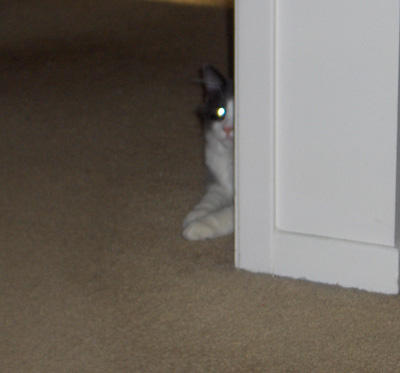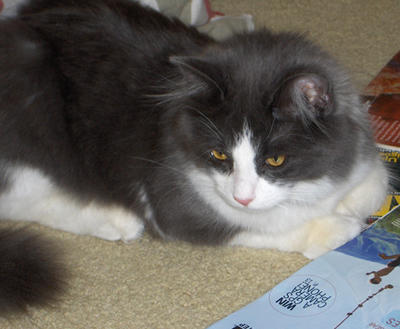Alfalfa
Ahem.
+
So there I was washing the dishes reading a box of cling wrap on the shelf over the sink, and there I saw this sentence:
Pour empêcher la pellicule de fondre, éviter tout contact entre la pellicule plastique et les aliments à forte teneur en gras (comme la bacon) ou en sucre (comme la pâte à tarte).
The word that grabbed me was "empêcher", which I instantly understood--despite its current meaning in French as "prevent"--must be the source of "impeach". So how did we get it? And does it have anything to do with peaches?
First things first. To impede literally means to un-foot; less literally, it means to shackle or hobble the feet, and metaphorically it means to get in the way of. An impediment is something which impedes or hinders; "impeachment" is the endpoint of a long line of alterations and variations of "impediment". So an impeachment is not, as many seem to think, a legal charge akin to an indictment; it's really something meant to hobble someone by discrediting them--an accusation of misconduct which can, but need not, lead to trial and conviction. (You can see that the French version went off in an entirely different direction: to hobble, and thence to keep from happening altogether.)
As for peaches, no. Their name has a fascinating origin: originally called the Persian apple, "Persicum malum" in Latin, their name was shortened to "persicum", then collapsed in Italian into "pesca"; turned into "pesche" in French, it soon enough lost its ess and, as we know, substituted for it a circumflexed vowel, becoming "pêche". evolving into English "peach".
+
Since everything for sale in Canada must be labelled in both English and French, we get the benefit of simultaneous translation all the time. Sometimes, though, it goes off the rails, particularly when a product is labelled in some other country for sale here.
What is now called "plumeria" used to be called "frangipani": it's an intensely scented flower still used in perfumery. I saw a product the other day that had the scent listed in English as "plumeria", as one would expect, and in French as "pruneria", which one wouldn't, because it's as wrong as can be.
Plumeria gets its name from a botanist, as is generally true with plants: in this case, a man named Plumier. (Frangipani was named after a different man, an Italian marquis.) The first four letters have nothing to do with plums, but whatever enterprising translator tackled the product in question must have thought it did, because "prune" is the French word for "plum". (And he can't have been the only person to have been led astray by those deceitful four letters, because I have heard "plumeria" mispronounced "plum-AIR-ee-ah": in accordance with its French origin, it's actually "ploo-MARE-ee-ah".)
If I'm not mistaken, the French word for "plumeria" is "pluméria"; no plums, no prunes.



